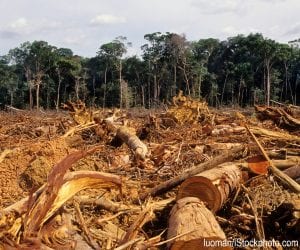As our world continues to develop, the challenges we face become increasingly complex and interconnected. The World of 7 Billion video contest tackles three of these challenges: preserving biodiversity, sustainable resource use, and protecting human rights. The planet’s biodiversity is severely threatened, as we lose over a dozen species per day. At the same time, the global economy continues to run on non-renewable resources, with fossil fuels accounting for 87 percent of global energy consumption. Achievement of universal human rights continues to lag, with over 10 percent of the global population living in extreme poverty, and with more than 260 million children unable to enter or complete their schooling. How can we, the global citizenry, provide sustainable solutions to these issues?
Protecting Biodiversity
Protecting global biodiversity can be tackled in multiple different ways. One part of the possible solution is maintaining and expanding the protected areas available to both flora and fauna. Protected areas—national parks, nature reserves, wilderness areas, etc.—can provide the space that plants and animals need to survive. This helps to combat the effects of habitat loss, which is the main driver of species extinction.
Real-world Solution: Earlier this month, environmental advocates in Nova Scotia succeeded in protecting nearly 2,000 hectares of land from degradation and development! Look for environmental or wilderness organizations in your own area to get involved with, like the Sierra Club, and protect your local wild spaces.
Using Resources Sustainably
The world’s leading climate scientists warn us that we have only twelve years to limit the impact of global warming to a manageable level. Limiting its impact, however, will require “rapid, far-reaching and unprecedented changes in all aspects of society.” One of the aspects that requires radical change is how we use our global resources, given that fossil fuel consumption is a primary driver of global greenhouse gas emissions.
Real-world Solution: Lawmakers in California have steadily reduced the state’s reliance on fossil fuels, and now aim to rely entirely on zero-emission energy sources for its electricity by 2045. California’s ambitious goal-setting is exactly what is required, and to this point the state has succeeded in reaching its targets. In addition to local and state governments, there are many organizations that aim to educate and advocate for the adoption of renewable energy, like the Solar Foundation, a non-profit leading efforts to adopt solar power across the United States.
Protecting Human Rights
As climate change continues to worsen, the ramifications of extreme weather events, food shortages, droughts, etc. will be felt most heavily in low-income nations. This intensifies the pre-existing human rights challenges facing our society, as we strive to provide each person with what they need to survive. One vital step towards achieving universal human rights is reproductive autonomy. This means that each person has the ability to choose how many, if, and when they have children. Reproductive autonomy helps to ensure that each child has the opportunities and resources necessary for a healthy life, and it helps to combat overpopulation, which exacerbates all aspects of global warming.
Real-world Solution: One organization working towards reproductive autonomy is Planned Parenthood, who, among other initiatives, help to form action clubs at colleges and universities across the country. These clubs allow young people to get involved in reproductive health advocacy, and to educate their peers on essential sexual health information. Look into joining your local Planned Parenthood chapter, or into starting a club at your high or middle school!
Working Today for Change Tomorrow
A better future for all requires effective, meaningful impact through constant effort, education, and sacrifice. It will require moving beyond our own personal lifestyle changes to incorporate our governments, corporations, and international organizations. It means using our votes and our dollars to support the people and causes that we believe in. While it may seem overwhelming, it is possible—and necessary—to change the way our society functions. In doing so, we can provide truly sustainable solutions for the issues that face us.




